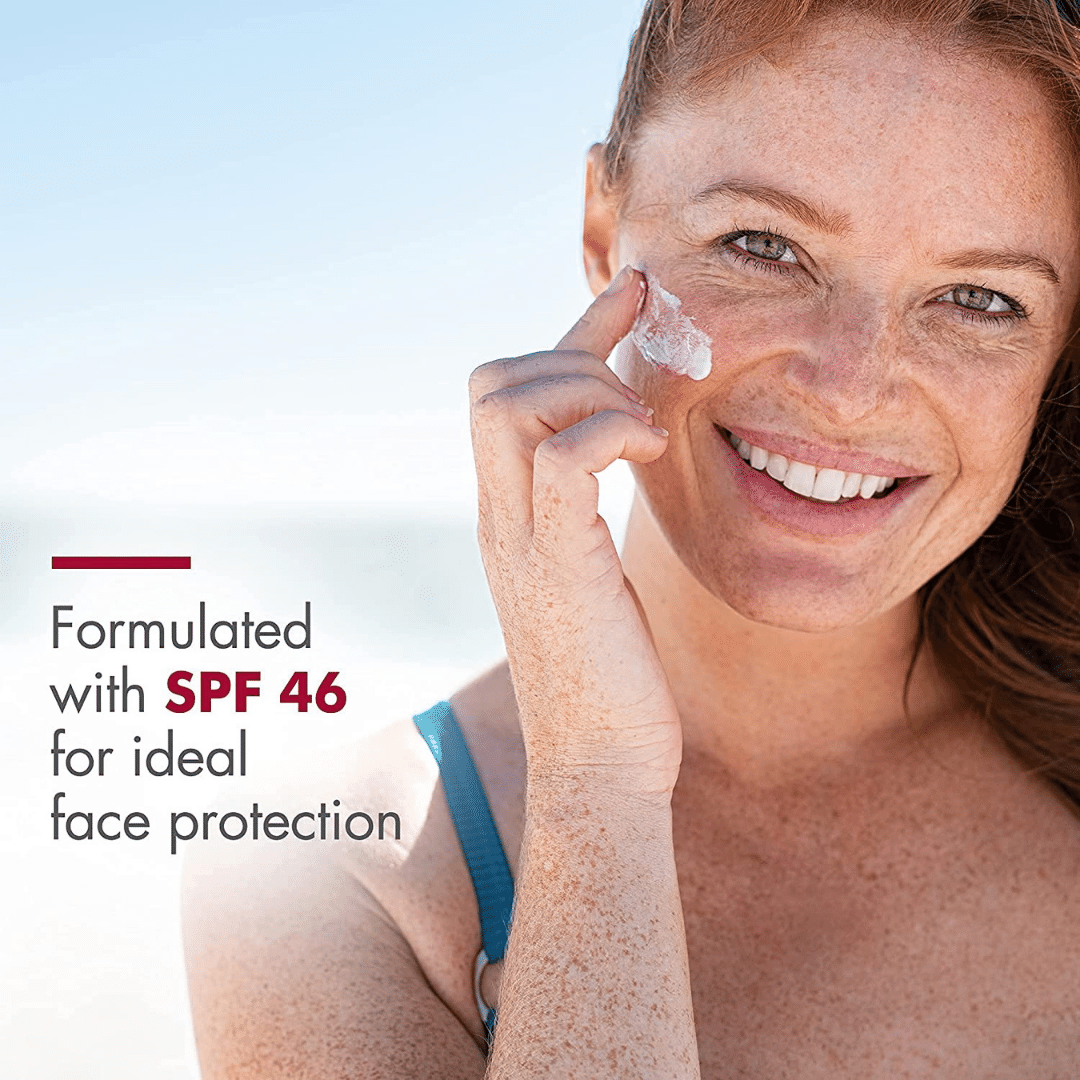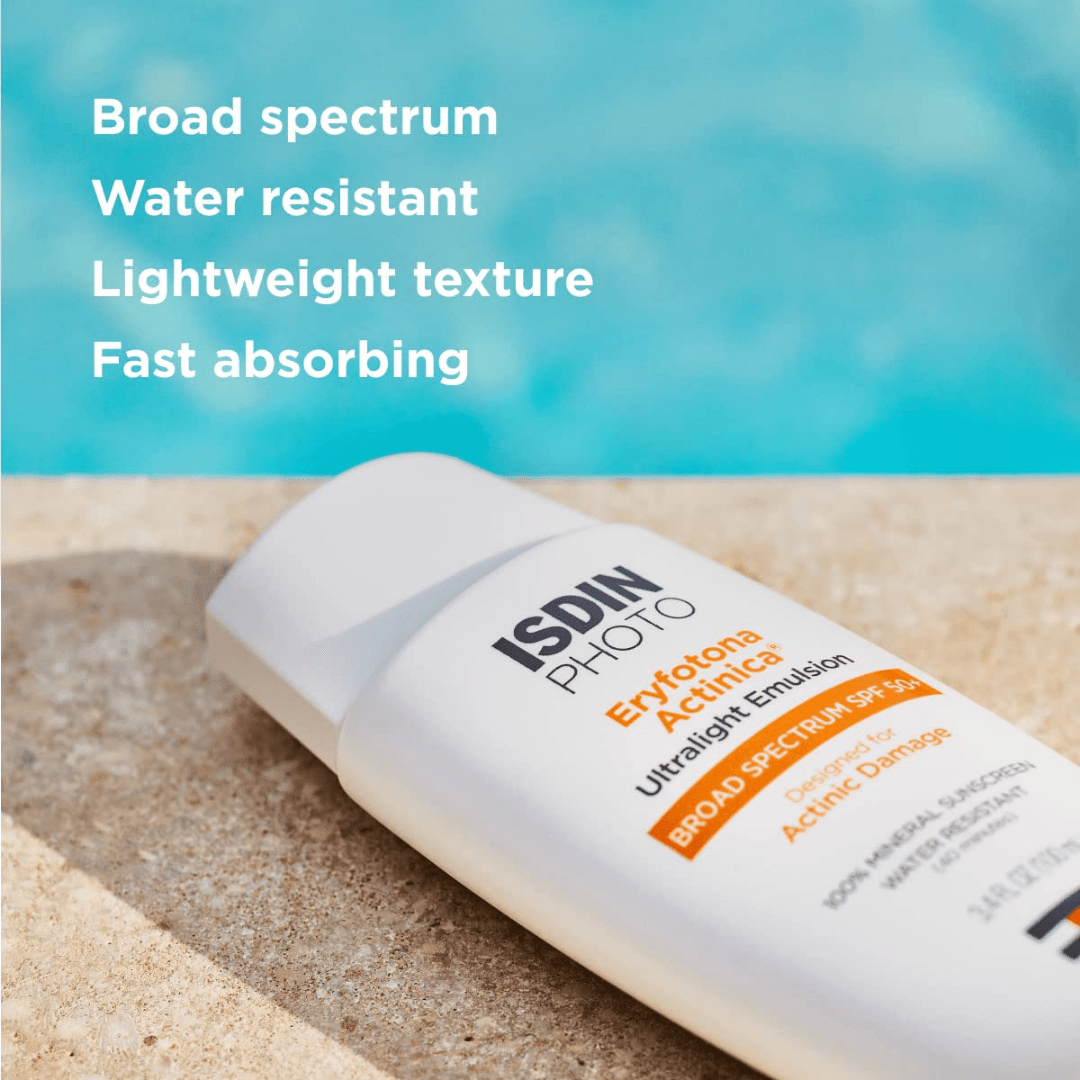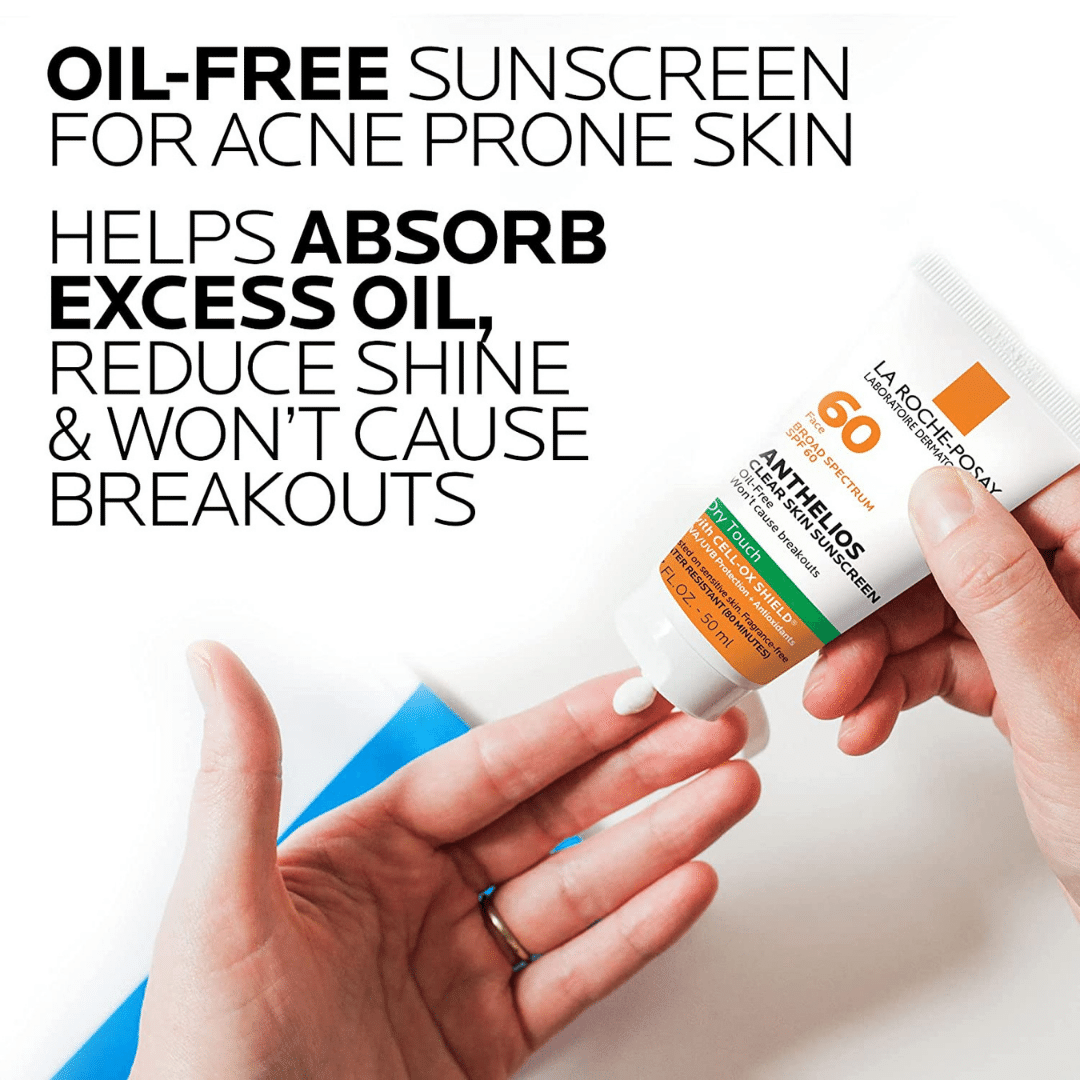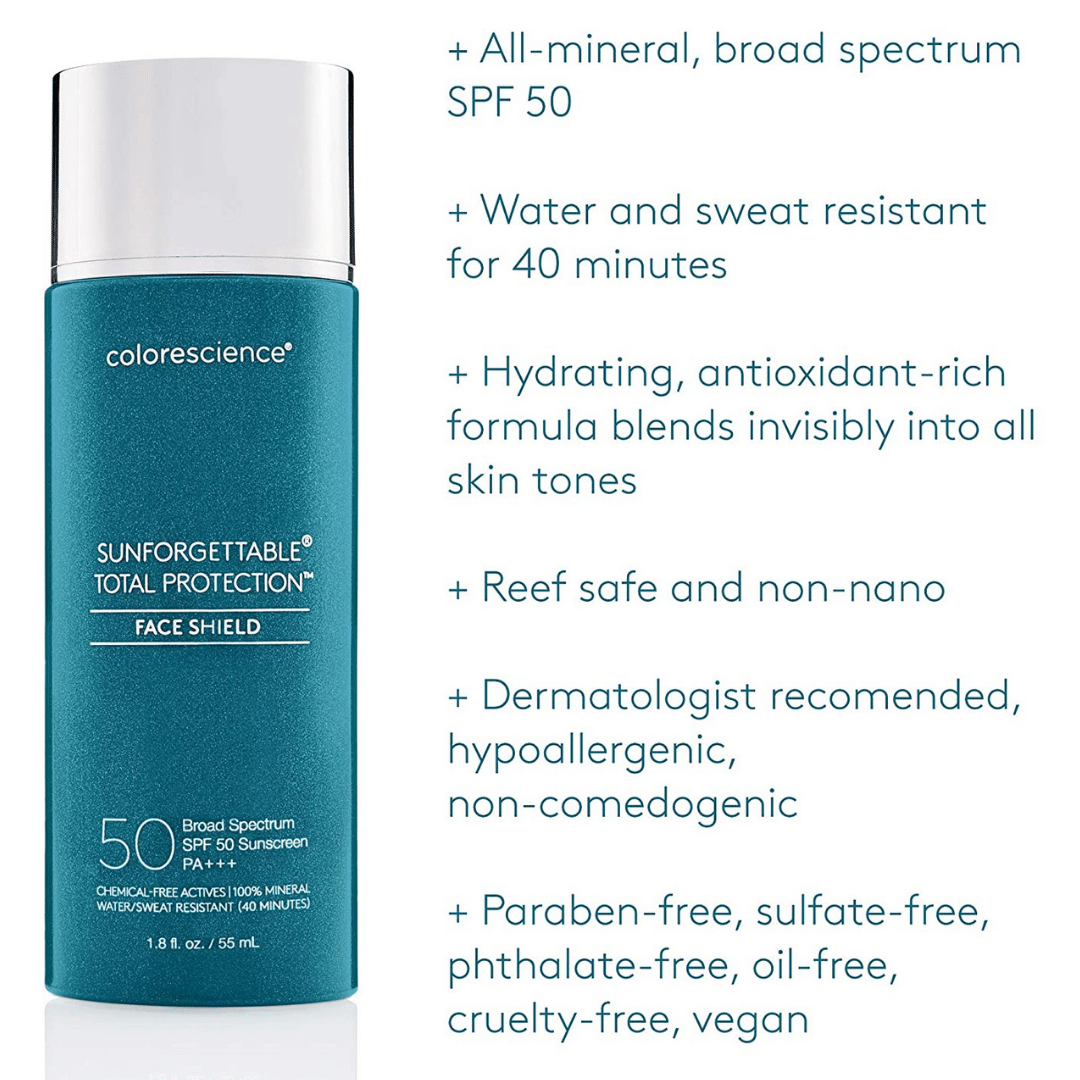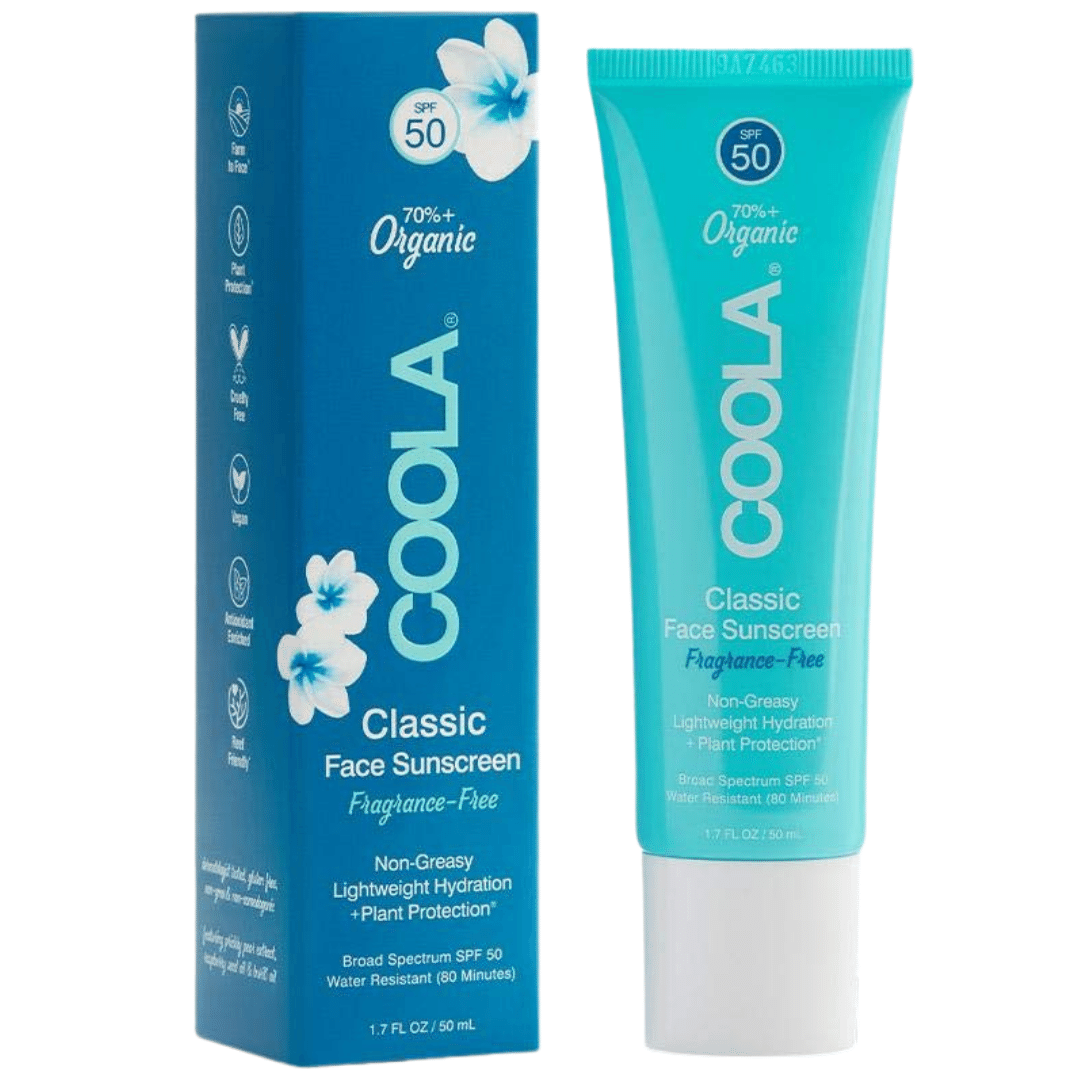Best Sunscreen for Your Face: Dermatologist's Top Recommended Brands
Top sunscreens recommended by dermatologist for all skin types! Find the right formula and protect your skin today!
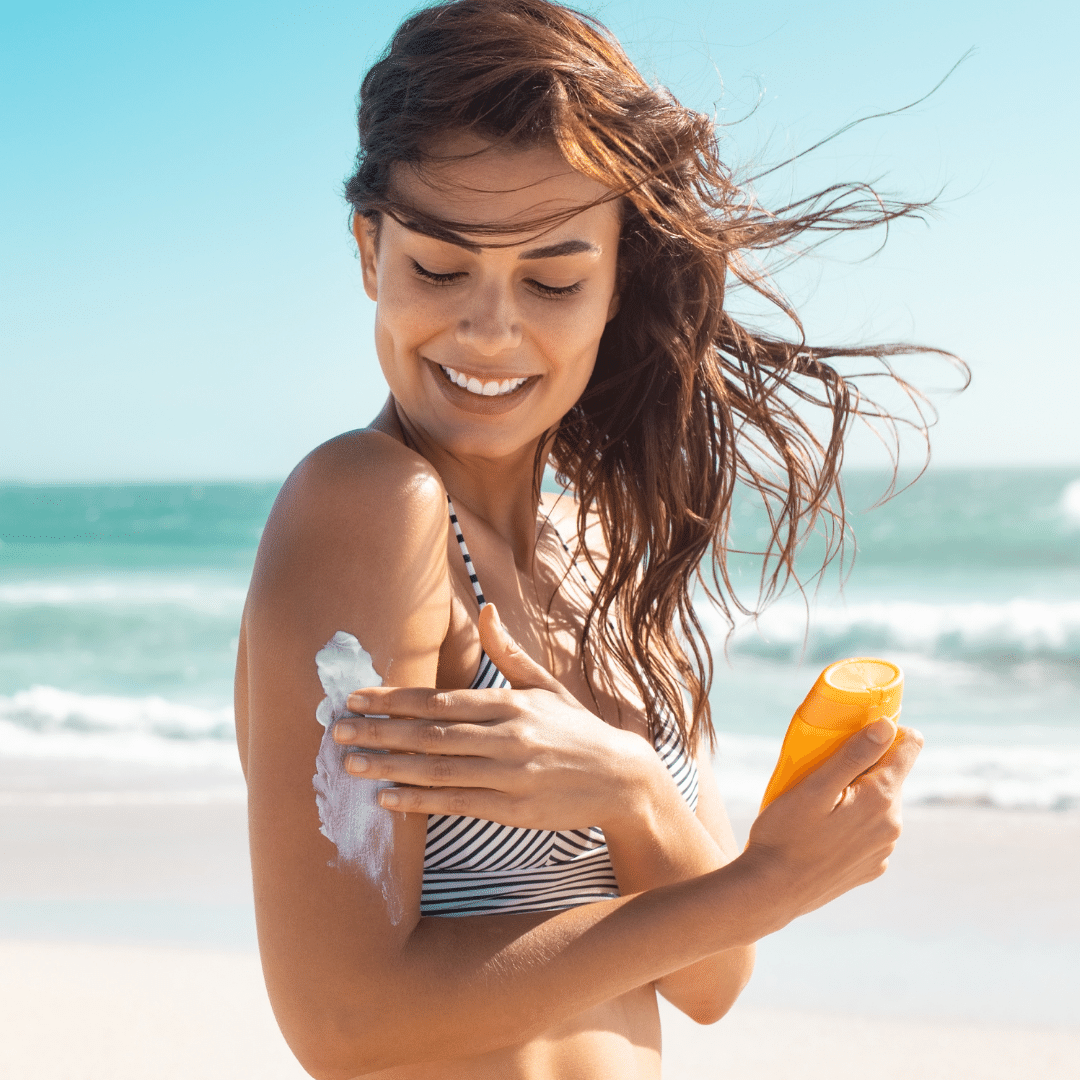
We are participants of the Amazon Associates Program. We may earn a commission from a qualified purchase from our reviews.
Do you know what the best sunscreen for the face is? If you're like most people, you probably don't have a clue. That's because many people just assume that any sunscreen will do the job. However, this is not true!
There are actually specific sunscreens that are designed for use on the face because the skin on our face is different than the skin on the rest of our bodies. In our guide, we will discuss the best sunscreens for the face and why they are so important. We will also provide the best sunscreen for your face; dermatologists top recommends of products to help you find the right sun protection!
How We Choose
Do you wear sunscreen every day?
Most people know that they should be wearing sunscreen every day, but many people don't. Sunscreen is an essential part of any skincare routine, and it's especially important to wear during the summertime when the sun is at its strongest.
That's why we've put together a list of the best facial sunscreens - so you can find one that fits your needs and your lifestyle. Whether you want a mineral sunscreen with zinc oxide or some with chemical filters for a facial sunscreen we've got you covered.
We've reviewed thousands of online reviews from Amazon verified customers to deliver to you the best product recommendations for facial sunscreens.
Follow along with our guide and find the best facial sunscreens for protecting your face today!
Why We Love It
Looking for a sunscreen that won't leave your skin feeling dry and irritated? Look no further than EltaMD UV Daily Face Sunscreen Moisturizer with Hyaluronic Acid!
This broad-spectrum SPF 40 sunscreen provides your skin with all-day moisture while protecting it from harmful UVA and UVB rays. Dermatologists recommended this unscented, paraben-free sunscreen. It's perfect for all skin types - even those with sensitive skin and a damaged skin barrier!
What You Should Know
As skin ages, it loses elasticity and the ability to retain moisture. This can lead to the formation of fine lines and wrinkles, especially for those with lighter skin tones and thin skin.
To help combat these signs of aging, and sun damage, many skin care professionals recommend using products that contain hyaluronic acid.
Hyaluronic acid is a natural substance that helps to keep our skin hydrated and plump. It can also help to reduce the appearance of fine lines and wrinkles.
This mineral-based sunscreen contains hyaluronic acid to help boost moisture retention and diminish fine lines. In addition, it offers broad-spectrum protection against the harmful UVA and UVB rays from the sun.
This hydrating sunscreen is great for those with dry skin. The clear-based, paraben-free formula will become your favorite skincare staple of any routine.
A great pick for any skin tone!
Why We Love It
Looking for a gentle, mineral sunscreen that won't leave your sensitive skin feeling dry and irritated? Look no further than ISDIN Eryfotona Actinica Mineral Sunscreen SPF 50+.
This broad-spectrum UVA/UVB sunscreen features zinc oxide technology and DNA Repairsomes to help protect your skin from the sun's harmful rays.
They've added vitamin E as an antioxidant which helps to keep your skin hydrated and looking healthy while also helping fight free radical damage from the suns rays.
The light, non-greasy formula is perfect for everyday use and won't clog pores. It's also beneficial to those with existing sun damage due to the DNA repairsomes.
ISDIN is a trusted brand to keep your skin looking its best.
What You Should Know
ISDIN Eryfotona Actinica Mineral Sunscreen SPF 50+ is a 100% mineral-based sunscreen designed to be lightweight and have broad-spectrum UVA/UVB protection without leaving your skin feeling greasy.
It is formulated with DNA repairsomes and vitamin E for antioxidant protection. This sunscreen is also water-resistant for up to 80 minutes.
ISDIN Photo Mineral Sunscreen SPF 50+ is perfect for everyday use and is safe for all skin types, including sensitive skin and mature skin. It's also safe for those with darker skin tones.
This broad-spectrum SPF 50 makes great face sunscreens for those who are concerned with sensitivities or those who already have sun damaged skin like actinic keratosis.
Why We Love It
Looking for a sunscreen that will not only protect your skin from harmful UV rays but also help to keep your skin clear and blemish-free? Look no further than La Roche-Posay Anthelios Clear Skin Dry Touch Sunscreen SPF 60.
This unique formula combines UVA/UVB filters with powerful antioxidants to deliver broad-spectrum protection against both sun damage and free radicals. Great for those with oily skin this mineral sunscreen works for every skin tone.
Its oil-free, non-greasy texture is perfect for those with oily or combination skin, and it won't clog pores or cause breakouts. So you can enjoy all the fun of summer without any worries!
What You Should Know
La Roche-Posay Anthelios Clear Skin Dry Touch Sunscreen SPF 60 is a great choice for those with oily and acne-prone skin.
The sunscreen utilizes Cell-Ox Shield technology to provide broad-spectrum UVA/ UVB protection from the sun, as well as antioxidant protection and is also water-resistant for up to 80 minutes, making it a great choice for those who are active and enjoy spending time outdoors.
La Roche-Posay Anthelios Clear Skin Dry Touch Sunscreen is also suitable for sensitive skin, making it a great choice for those who are concerned about the ingredients in their sunscreen.
For those who suffer from acne prone skin there is an added concern for PIH, post inflammatory hyperpigmentation. Having a sunscreen that can help to avoid issues with hyperpigmentation for those with acne is a real game changer.
Anthelios Clear Skin Dry Touch 100% Oil-Free Sunscreen provides advanced protection while absorbing pore-clogging oil in the heat & humidity. This sunscreen for acne-prone skin provides broad-spectrum 60 protection. Water-resistant (80 minutes).
Recommended for: Face– ideal for oily & acne-prone skin. Recommended by the Skin Cancer Foundation for its ability to protect the skin.
Key Ingredients: Cell-Ox Shield Technology (provides broad-spectrum UVA/ UVB Protection + Antioxidants). This product has been featured by Allure Magazine, 2020.
If you want a product that offers protective face sunscreens while also combating skin-damaging free radicals this is the one for you!
Why We Love It
Looking for a product that provides comprehensive protection against the sun, pollution, and other environmental aggressors? Look no further than Colorescience Total Protection Face Shield SPF 50.
This powerful formula is powered by EnviroScreen Technology to provide superior protection against UVA/UVB rays, pollution, blue light, and infrared radiation.
Fragrance-free and easy to use, just apply liberally and evenly to your face, neck, and chest area for optimal protection.
What You Should Know
Colorescience Total Protection Face Shield SPF 50 is a mineral sunscreen that provides broad-spectrum SPF 50 defense against UVA/UVB, pollution, blue (HEV) light, and infrared radiation.
The active ingredients are 100% mineral and the sunscreen is chemical-free. It is also water/sweat resistant (40 mins), non-greasy, and has a non-greasy finish.
It is paraben-free, sulfate-free, phthalate-free, oil-free, gluten-free, fragrance-free, cruelty-free, hypoallergenic, and non-comedogenic. It is suitable for all skin types and tones.
Colorscience is obsessed with being overprotective about preventing skin damage. And that’s exactly why our board-certified dermatologists love them. With cosmetic and clinical research, this best mineral sunscreen lotion SPF takes the cake!
This hydrating, antioxidant-rich formula leaves a nongreasy finish which works wonders to add before your makeup applications and protect your skin.
A top pick for mineral sunscreens for all skin tones, this broad-spectrum SPF will help protect your skin barrier and help fight blue light (HEV) damage.
Why We Love It
When it comes to sun protection, our Organic Face Sunscreen & Sunblock Lotion has got you covered!
This lotion is water- and sweat-resistant for up to 80 minutes, making it ideal for days spent outdoors. It's also antioxidant-rich and helps shield your skin against the sun and other elements.
Plus, it doubles as a daytime moisturizer, leaving your skin looking and feeling silky smooth. So why not give it a try? Your skin will thank you for it!
What You Should Know
COOLA's Organic Face Sunscreen & Sunblock Lotion is your invisible shield against the sun and elements. The Farm to Face formula provides sheer broad-spectrum UVA/UVB protection while hydrating skin.
Formulated with an antioxidant-rich Plant Protection Complex, this light-as-air sunscreen layers perfectly under makeup. Great for oily skin, this best mineral sunscreen is a super find. It also doubles as a facial moisturizing lotion SPF especially helpful if you have dry skin.
COOLA's Organic Face Sunscreen is 70%+ Certified Organic Ingredients, Broad spectrum SPF 50 protection, water-resistant (80 minutes), Sheer and lightweight, yet hydrates all day.
It features Plant Protection, their proprietary blend of naturally effective and antioxidant-rich nutrients.
In the TSA-approved size, its available in a natural white tea scent or fragrance-free for those who may have sensitivities to fragrances.
This sunscreen lotion SPF is great for darker skin tones as well as all skin types.
Their Non-GMO, Paraben-Free, Gluten-Free, Vegan, Cruelty-Free, Reef-Friendly, and 100% recyclable plant-based tubes are sourced from sugar cane, making this find perfect for those who are eco-friendly and want good skin protection!
Sunscreen FAQ's
Most people know that they should be using sunscreen every day, whether those are chemical sunscreens or mineral sunscreens. Still many of us still don't wear them despite warnings from your board-certified dermatologist. We should all be wearing at least an SPF 30 rating or higher as part of our efforts to both protect skin, repair existing sun damage and prevent free radical damage.
Sunscreen is an incredibly important part of any skincare routine, but it's also one of the most neglected products. A staggering 75% of Americans reported not using sunscreen regularly last year, which is why skin cancer is now the most common form of cancer in the US.
That's why we've made it our mission to provide information for you on the best high-quality sunscreens that dermatologists recommend. With any of these sunscreens, you'll get broad-spectrum protection for combating the damage the UVA/UVB rays can do to your skin, and you'll love the light and refreshing feeling it leaves on your skin.
We believe that everyone should be using sunscreen every day, no matter what their skin type is. If you have dry skin use a product that hydrates skin. For oily skin types, chemical sunscreens tend to be better.
We want to answer even more of your questions so here it goes.
1. Why should you wear sunscreen?
The top reasons to wear sunscreen are to protect yourself from skin cancer and premature skin aging. Sunscreen can also help protect you from other forms of skin damage, such as sunburns and melasma or hyperpigmentation.
In addition, wearing sunscreen can help boost your overall health by protecting you from the harmful effects of UV radiation.
2. Are you familiar with dermatologist-recommended sunscreens?
We think it's important to use a sunscreen that is specifically designed for the face, as the skin on the face is more delicate than the skin on the body. We also want to make make sure you reapply sunscreen every two hours, even if you're not going outside, as ultraviolet light can come through window glass.
3. What kind of ingredients should we look for in sunscreens?
The ingredients to look for in sunscreens vary depending on your skin type.
If you have oily skin, you'll want to look for sunscreens that contain zinc oxide or titanium dioxide, which are physical sunblocks that sit on top of the skin and reflect the sun's rays.
If you have dry skin, you'll want to look for sunscreens that contain hyaluronic acid or glycerin, which bind water to the skin and help keep it hydrated.
And if you have sensitive skin, you'll want to look for sunscreens that are free of PABA, oxybenzone, and other sensitizing ingredients.
4. Do you think board-certified dermatologist-recommended sunscreens are worth the price?
Starting from the premise that all dermatologists would recommend sunscreen, the question becomes one of the price points. A quick google search shows that some sunscreens can cost upwards of $50 while others are closer to $10.
So what your local board-certified dermatologist might say is that it depends on the person's budget. If someone can afford a $50 sunscreen, then it might be worth it to them because it will offer better protection than a cheaper sunscreen which may have cheaper ingredients in it. In addition, many of the higher priced sunscreens have other additional ingredients such as antioxidants and moisturizing properties.
However, if someone can only afford a $10 sunscreen, then they should still get good protection from that and don't need to spend more money than they have to. Just make sure that you use a broad-spectrum product that is either a chemical sunscreen or mineral sunscreen.
The Cancer Society recommends an SPF 30 or greater no matter what skin type or skin tone you have as the UVA rays still penetrate through your skin. There are many formulas to choose from; lightweight formula, oil-free formula, water-resistant formula, and even tinted sunscreen. Face sunscreens are an important part of any anti-aging practice.
At the end of the day, what matters is that people use sunscreen regularly and correctly.
5. How do UVA and UVB sun rays damage your skin?
UV radiation from the sun can damage your skin in several ways. UVB radiation is the main cause of sunburn, and UVA radiation penetrates deeper into the skin and can cause more long-term damage.
Both UVA and UVB radiation can cause direct damage to DNA, which can lead to the development of skin cancer. They can also cause indirect damage by damaging enzymes that protect against DNA damage, leading to increased oxidative stress. This increased oxidative stress can contribute to the development of skin cancer, as well as premature aging of the skin.
Broad Spectrum sunscreens help to protect against both UVA and UVB rays to offer the best protection.
6. How often should you wear sunscreen?
As a general rule of thumb, it is recommended that you wear sunscreen every day - even on cloudy days - and reapply it every two hours when you are exposed to direct sunlight.
If you are going to be swimming or sweating profusely, make sure to reapply your sunscreen at least every two hours since sweat can cause it to wear off faster. We recommend reapplying when you get out of the water as water can break down sunscreen and attract the rays to you. The same applies when you're done with any activity that causes you to sweat.
And last but not least, always remember to put on lip balm or ChapStick with SPF to protect your lips from the harmful effects of the sun!
7. What is the difference between a chemical sunscreen and a mineral sunscreen?
A chemical sunscreen usually contains avobenzone, oxybenzone, octisalate, octocrylene, and homosalate. These sunscreens work by absorbing the sun's ultraviolet (UV) rays.
A mineral sunscreen usually contains zinc oxide and/or titanium dioxide. These sunscreens work by scattering (reflecting) the sun's ultraviolet (UV) rays.
8. When should you wear sunscreen?
The American Academy of Dermatology recommends wearing sunscreen every day, rain or shine.
Sunscreen should be applied to all exposed skin, including the lips, when outdoors. Reapply at least every two hours.
9. How often should you apply sunscreen?
Most dermatologists recommend applying sunscreen with an SPF of at least 30 every day, even if you don't plan on spending time in direct sunlight. This is because UV rays can penetrate clouds and glass, so you're still exposed even when you're not in direct sunlight.
For people with fairer skin or who are prone to sunburns, it's especially important to be diligent about applying sunscreen. If you'll be spending a lot of time outdoors, or if the UV index is high in your area, you should reapply sunscreen every two hours.
Water, sweat, and towel drying can all remove sunscreen from your skin, so it's important to reapply after swimming or sweating.
Dermatologists also recommend wearing lip balm or ChapStick with SPF to protect your lips from the harmful effects of the sun.
10. What is the difference between sunblock and sunscreen?
Sunscreen generally refers to products that you put on your skin to protect it from the sun. These are referred to as chemical sunscreens. These filter out or screen out some of the UV rays. Sunscreens contain ingredients like oxybenzone or avobenzone.
Sunblock usually means that it's a physically blocking product and contains titanium dioxide or zinc oxide. Sunblock sits on top of your skin and physically blocks UV light.
Best Dermatologist Recommended Sunscreens
Now that you’re fully armed with the information you need, it’s time to choose sunscreen! We hope our guide has been helpful and that you will consider using one of the sunscreens we recommended.
Remember to reapply often, especially if you are swimming or sweating. And don’t forget to protect your loved ones too – sharing is caring!
For more information please follow the Skin Cancer Foundation at https://www.skincancer.org
Click the button today to find the best sunscreens to protect you and your loved one's skin today.
Be sure to read the best smelling sunscreens here.

Follow us on GottaGuide.com, Twitter, Facebook, and Pinterest, Quora for our latest articles on all things skincare and beauty. When you follow us in Quora we have an open platform to ask your beauty questions.
PAID ENDORSEMENT DISCLOSURE: As a staff of licensed aestheticians we review products based on their merit based on our professional expertise. This is not a replacement for your own skin therapist's advice for your skin or any medical claim or endorsement. We encourage you to seek medical care when appropriate. To support our website activities, we may receive monetary compensation or another form of recompense for our endorsement, recommendation, testimonials, and/or links to any products or services from this website as part of the Amazon Associate program or another Affiliate program. We Thank you in advance for your patronage.


